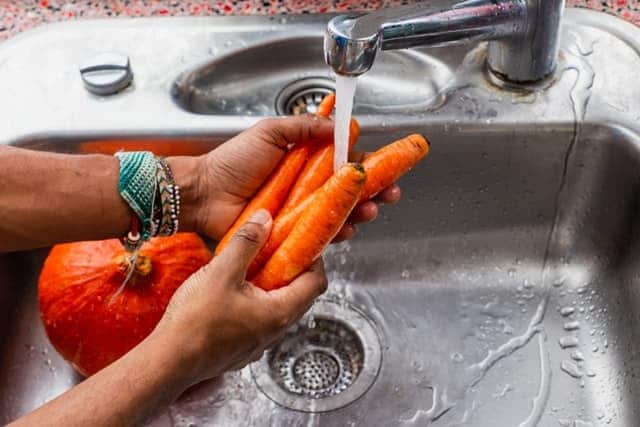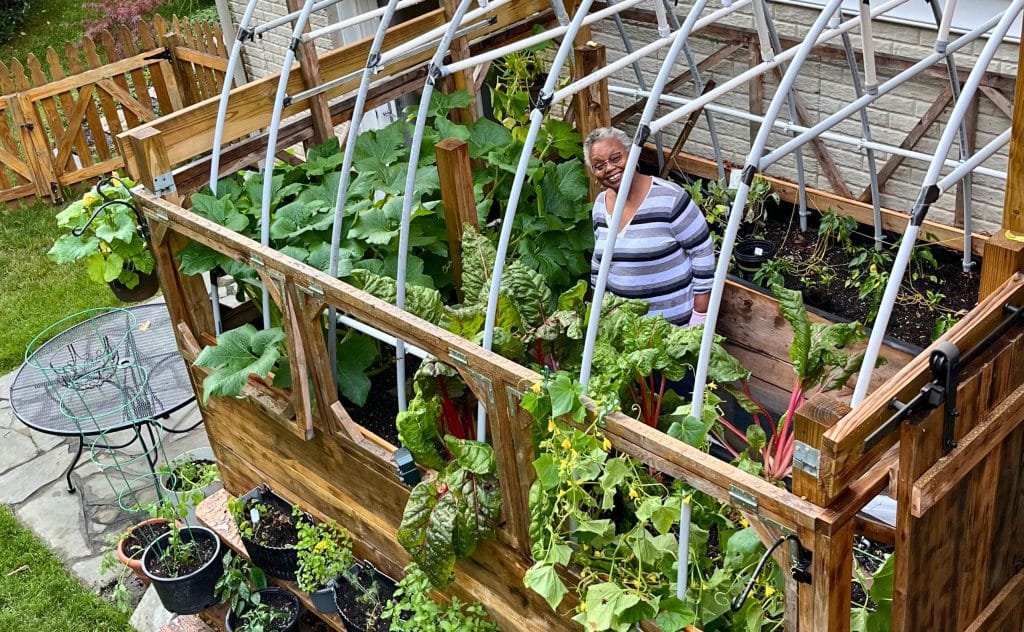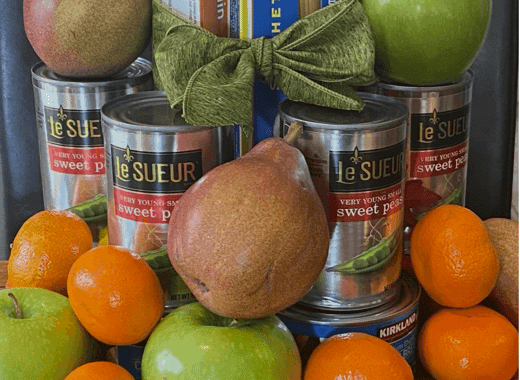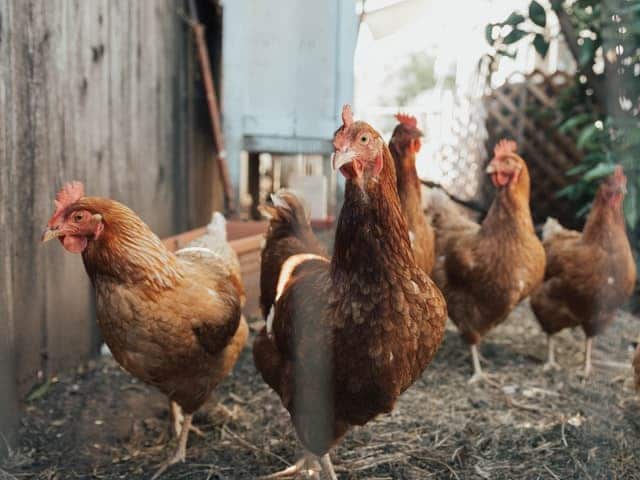I did not realize how many mailing lists I was on until now. Every company, from clothing to airline to restaurant to universities, has e-mailed to explain the measures they are implementing in response to the coronavirus. I grew up in Hong Kong and canceled my visit in February because friends and family were dealing with the coronavirus; I have heard a lot about this novel virus for a while. We continue to learn about the coronavirus every day. I want to share what I have learned about safety when dealing with fruits and vegetables. There may also be additional precautions to consider as we understand this virus better.
Coronavirus is spread by respiratory droplets, and through contact with contaminated surfaces, so it is not foodborne and not transmitted by being ingested. The USDA has reported they “are not aware of any reports at this time of human illnesses that suggest COVID-19 can be transmitted by food or food packaging” [1]. Hopefully, this provides some relief to gardeners. If you are teleworking or stuck at home and have more time to spend in the garden, your plants are not at risk of carrying the virus. Home gardening may be a great activity to take a breather and stay calm.
Fruits and vegetables will become even more important during these trying times as grocery stores have trouble restocking foods. With many lost hours of work for an indefinite amount of time, more people are facing food insecurity. A diet with fruits and vegetables is essential for a healthy immune system, which is needed to fight this contagious virus.
There was a study conducted in 2013 which tested how long SARS (another coronavirus) could survive on lettuce and strawberries. It did not last long on strawberries and could be found on lettuce for about four days, demonstrating the type of produce makes a difference and that it remains on food for a shorter amount of time than other respiratory viruses [2].
Poliovirus was tested too and lasted on produce for 15 days! Nonetheless, the fact that the coronavirus can remain on the surface of produce poses some risk for being picked and handled by people who may be infected.
The virus can be spread by people who show no symptoms, which makes it tricky, and certainly by people who are symptomatic. So if you are coughing or sneezing, you may want to avoid handling fruits and vegetables until you are feeling better. When handling produce, using gloves can help prevent contamination of food, and remember not to touch your face while doing so. When preparing produce, rinse it thoroughly. [3] Also, cooking foods will kill the virus, so there is no concern if you are cooking your vegetables. Hopefully, this helps remind us how important eating fresh fruits and vegetables are, especially during the pandemic.
References:
[1] https://www.usda.gov/coronavirus
[2] https://link.springer.com/article/10.1007%2Fs12560-013-9114-4
[3] https://www.cdc.gov/coronavirus/2019-ncov/daily-life-coping/food-and-COVID-19.html




